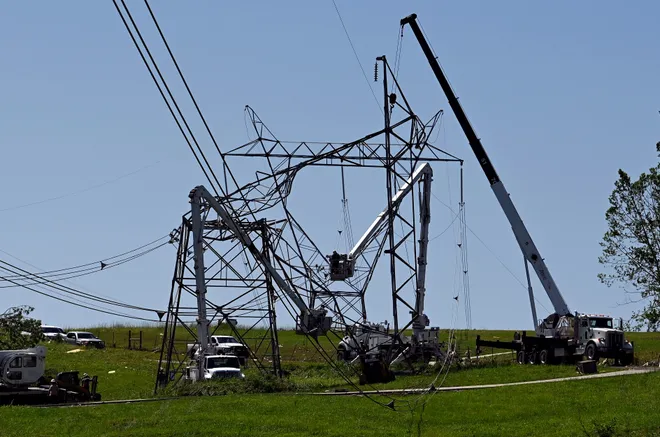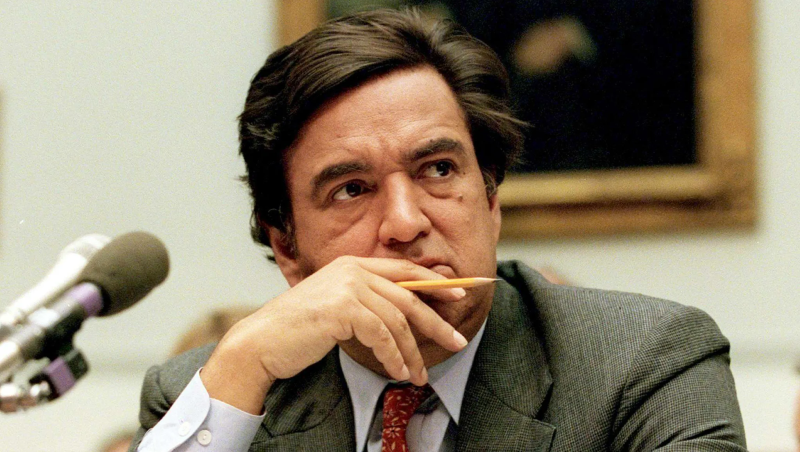Campaign money? Bribes? Lobbying? Your utility rates may include some, advocates say
Millions of Americans receive their monthly utility bill and just assume it’s high because it’s been sweltering outside.
That’s only part of the story. Customers are also paying for everything from your utility company’s trade association fees, to lobbying efforts to increase your rates to maybe, even country club memberships, consumer advocates say. In the worst instances, according to legal allegations, you’ve also paid bribes to politicians, they say.
Such items may add up to a few extra dollars per month, which doesn’t seem like much on a $150 bill but that can become a fairly hefty tab, especially as the amount people are behind on their utility bills has soared 8.4% to $17.4 billion since December 2023. That's according to The National Energy Assistance Directors Association (NAEDA), which guides states to help low-income households with their energy needs. NAEDA predicts shut offs to increase by 300,000 households to 3.5 million by the end of the year.
Utilities also often have a lock on hundreds of thousands of customers in each area they service, so the public has no choice, experts noted.
“If everyone pays multiple dollars a month more, over years, that’s hundreds of thousands of dollars” companies are collecting from Americans that have nothing to do with the cost of their power, said David Pomerantz, executive director of watchdog organization Energy and Policy Institute (EPI).
What are utilities making customers pay for?
Financial statements show utilities often include trade association fees and expenses for outside professional services and social and service club membership dues.
For example, when Peoples Gas made its case to regulators last year to increase prices, it included expenses like memberships to Mid-America Club, “Chicago’s premier venue for building diverse relationships and networks,” and Olympia Fields Country Club, which gives the company “access to amenities and network opportunities to build business and diverse relationships.”
Memberships in professional organizations like chamber of commerce groups and trade associations provide research and other perks that benefit their customers, utilities have said.
Critics argue that some of those trade groups and professional organizations lobby for higher rates or against initiatives that might cut into the utility's business, like rooftop solar power, energy efficiency and building electrification, Pomerantz said.
Utilities have also funneled money to 501(c)(4) non-profits, or “social welfare” organizations that can accept unlimited corporate and personal donations and are often used to engage in lobbying activity, issue advocacy, or political activity, such as supporting or opposing a candidate.
These non-profits were central to FirstEnergy’s bribery scheme revealed in 2020 to have influenced the now indicted former Ohio House speaker Larry Householder, for example. In that case, FirstEnergy and its affiliates sent millions of dollars to 501(c)(4) organizations that then donated $60 million to political action committees.
“In return, the utility secured a $1 billion ratepayer-funded bailout for several of its unprofitable nuclear and coal plants, and another lucrative provision that guaranteed the profits of FirstEnergy’s Ohio utilities at ratepayers’ expense,” Pomerantz wrote in a report.

What do utilities say?
Ultimately, state regulators approve rate increases for utilities companies, and utility companies’ requests aren’t always approved.
Peoples Gas, for instance, asked last year for $5.2 million in such expenses when it requested a rate increase, company documents show. Regulators cut that by $172,000.
By law, executive and country clubs aren’t even allowed to be charged to customers. Instead, they are charged to shareholders, Peoples Gas has said.
But some experts question whether that is indeed the case.
“Fair enough, if that's true,” said Matt Kasper, research director at EPI. “But I think it's also fair to push back on the company because why else would they include Olympia Fields Country Club, City Club of Chicago, The Chicago Club, etc. as part of this list to come up with the amount…for proposed rates? Where's that customer money you asked for going to go?”
FirstEnergy, which had the bribery scandal, said it’s implemented reforms.
“FirstEnergy, led by a new Board of Directors and executive team, has taken significant steps to move the company forward,” it said in an emailed statement. “We’ve made meaningful improvements to advance our culture of ethics, integrity and accountability, including creating a highly effective compliance program and making critical advancements to enhance policies, procedures and processes and provide transparent reporting to all of our stakeholders.”
Americans can't pay the bill:Electric bills forecast to soar with record summer heat, straining household budgets

What do states say?
Eleven states this year are considering utility accountability legislation to keep utilities from passing on political-related expenses to consumers. They include Arizona, California, Illinois, Maryland, Minnesota, New York, Ohio, Pennsylvania, Rhode Island, Utah, and Virginia.
Colorado, Connecticut, and Maine passed this type of legislation last year.
Critics argue more needs to be done. Even though states regulate rates, each state uses the Federal Energy Regulatory Commission’s (FERC) financial form.
“FERC has operated with a default accounting and reporting system that allows utilities to designate which dues are being recovered by ratepayers and other expenses,” said Tyson Slocum, director of the energy program at progressive nonprofit advocacy group Public Citizen. “It allows utilities to make the initial call as to what is recoverable and not.
“We propose to do the opposite,” he said. “Start with the contention that no financial contribution to trade associations or other similar efforts can be recoverable (by the utility company) unless requested to be. Change the default.”
Last year, Representative Kathy Castor (D-Fla.) introduced legislation directing FERC to prohibit utilities from charging political expenses, including any advertising, marketing, or public relations that could influence elections or appointments of public officials, sway public opinion of certain bills or affect rate setting, among other things.
It also would ensure utilities do not recover costs for dues or fees paid to trade associations or industry associations and certain types of nonprofits. Utilities that fail to comply or violate the law would incur penalties.
“Most people assume they’re paying for the cost of electricity, delivering it, power plants, lines," Pomerantz said. "Most people don’t assume they’re paying for lobbying, advertising and other things.”
Medora Lee is a money, markets, and personal finance reporter at USA TODAY. You can reach her at mjlee@usatoday.com and subscribe to our free Daily Money newsletter for personal finance tips and business news every Monday through Friday morning.
Disclaimer: The copyright of this article belongs to the original author. Reposting this article is solely for the purpose of information dissemination and does not constitute any investment advice. If there is any infringement, please contact us immediately. We will make corrections or deletions as necessary. Thank you.







